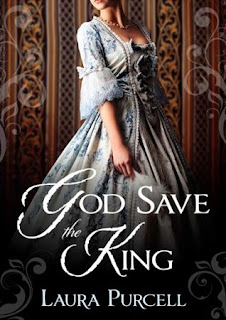Rating: ★ ☆ ☆ ☆ ☆
Obtained from: Netgalley
Read: August 21, 2016
═══════════════════════════ ❧ ═══════════════════════════
 I wish I’d read the reviews of Ed Gray’s Left in the Wind: A Novel of the Lost Colony: The Roanoke Journal of Emme Merrimoth before picking it up. Gray's thesis is intriguing, but his presentation isn’t the kind I appreciate and the creative license exercised by the author has forever tainted my interest in the early settlement. I know that sounds dramatic, but it's true. I'll never be able to think of John White or Ananias Dare the same way again.
I wish I’d read the reviews of Ed Gray’s Left in the Wind: A Novel of the Lost Colony: The Roanoke Journal of Emme Merrimoth before picking it up. Gray's thesis is intriguing, but his presentation isn’t the kind I appreciate and the creative license exercised by the author has forever tainted my interest in the early settlement. I know that sounds dramatic, but it's true. I'll never be able to think of John White or Ananias Dare the same way again.My biggest issue with the narrative is that I couldn’t stand its heroine. Emme enjoys many deep moments of erotic ecstasy over the course of the story and while I’ve nothing against sexually confident women, I was intensely disappointed, and more than a little offended, by Gray’s failure to develop any other aspect of her personality and character. I recognized no genuine substance in her being and I couldn’t help feeling outraged by the insinuation that a woman has no other desire, form, or function. Emme, unfortunately, is not the only character to suffer from lack of depth and development. The male members of the cast fall into one of two categories: those who want to bed Emme and those who don’t. They've virtually no complexity in their make-up and here again, I was not impressed with the oversight.
I’ll grant that Gray put a great deal of time and research into the novel and I admire that most of the cast are based on real life individuals, but while I found the period details interesting, I was disappointed to realize that much of the meritable material was overshadowed by far-fetched situational drama. I found Emme’s abduction overtly coincidental, her physical and psychological adaptability thoroughly unsubstantiated, and her ability to induce lactation, while plausible, highly improbable under the circumstances of her existence and understanding. I liked the political intrigue well enough, but when push comes to shove the fate of the colonists plays second fiddle to Emme's steady parade of paramours so I don't see that my admiration means very much in the grand scheme of things.
My final criticism is the structure of the story or more appropriately, the lack there of. Gray assumes his readers are familiar with the venture so there is little exposition which didn't bother me as a) I am familiar with the history and b) Emme isn't really involved in too much of the politics anyway. You read that correctly folks, most of the story happens around Emme. She is not an active participant until the end when she is abruptly thrust into the climax of the story as the unlikely voice of truth. She’s largely disassociated from the plight of her fellows so the key moment felt awkward anyway, but things only got worse from that as the novel ended without firm resolution. There is a moment, tacked on years later as a bit of an afterthought, but it doesn't provide a definition sense of closure and left me wondering why I'd bothered reading the book at all.
When all is said and done, Left in the Wind was not my kind of book and is not something I see myself recommending forward.
═══════════════════════════ ❧ ═══════════════════════════
Though some in our company had been moved by the speech, I had my doubts. Men's protestations of grand intentions I had heard in some quantity, and long ago I had decided that most were a mask to hide the speaker's real purpose.
═══════════════════════════ ❧ ═══════════════════════════





























